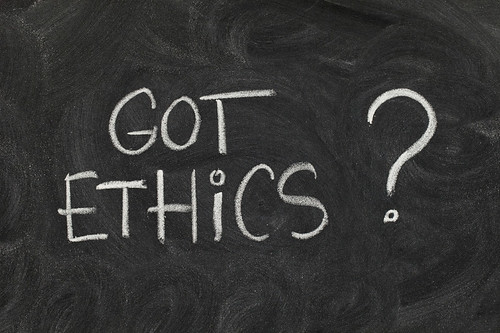kb408112@ohio.edu
As our readings pulled from Bill Kovach and Tom Rosenstiel's book, The Elements of Journalism, point out, we as journalists are faced with multiple decisions and thought processes to maneuver through before, during, and after a story is produced. As representatives of ourselves as journalists and the media outlet we will be employed by, it's our job to consider all of these important elements with each and every story that our name is behind, no matter how big or small. Not only do we have to consider all of these with each project, but it's important that we consider each element with the same amount of interest and commitment.
What are these elements, you ask?
With every project we are assigned, we have to find a balance within our own freedoms that we have as journalists and American citizens, as well as between the ethical code of our own and that of the media organization for which we work, and last but not least, between said elements and the opinion and feelings of the source and/or third party involved.This third party can be considered as an interviewee who provides information for your story and/or the viewer that is consuming the content being produced.
If any of these elements are neglected, the quality of a story can be compromised. If not in the eyes of your own, it's possible that a source may think differently when they read a story. It's our job as journalists to make news, even the hardest hitting of news that many may have a hard time dealing with, digestible and informative, without sugar-coating true events. However, as journalists, I think it's important to understand the situation of a source in times of tragic news, and to know how to respect their thoughts and feelings in the production of your news story, without reporting in a biased or unprofessional manner. In other words, we should do our best to minimize harm on our sources, as discussed by fellow journalist and Society of Professional Journalists member Fred Brown in this article.
In an article found on The Barre Montpelier Times Argus website, a media ethics class similar to ours discussed this subject with a woman who has experienced being a target source of the media first hand. "It makes you feel entrapped," said Mariah Phillips, whose father, Capt. Richard Phillips was being held hostage by Somali pirates while she was being asked to provide more information on the incident. This is only one example of many situations where the sensitivity of a source must be balanced with a journalist's code of ethics and freedom to inform and ask questions.
Writing a balanced story that is put together based on the implementation of these elements is vital to every story, but especially those that will directly affect the personal life of a source. I think the Times Argus article provides a good example of this type of story, as well as the recent breaking story of the Roanoke, VA journalist shooting, that affected the lives of many. As journalists and as citizens, we never know when this type of news will break, so it's important to be prepared to ask yourself and your potential sources the questions that are ethically and journalistically sound.
 |
| flickr.com |
No comments:
Post a Comment